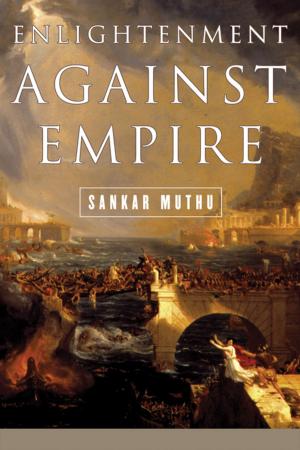The Consolations of Writing
Literary Strategies of Resistance from Boethius to Primo Levi
Fiction & Literature, Literary Theory & Criticism, Nonfiction, Social & Cultural Studies, Social Science, History| Author: | Rivkah Zim | ISBN: | 9781400852093 |
| Publisher: | Princeton University Press | Publication: | September 28, 2014 |
| Imprint: | Princeton University Press | Language: | English |
| Author: | Rivkah Zim |
| ISBN: | 9781400852093 |
| Publisher: | Princeton University Press |
| Publication: | September 28, 2014 |
| Imprint: | Princeton University Press |
| Language: | English |
Boethius wrote The Consolation of Philosophy as a prisoner condemned to death for treason, circumstances that are reflected in the themes and concerns of its evocative poetry and dialogue between the prisoner and his mentor, Lady Philosophy. This classic philosophical statement of late antiquity has had an enduring influence on Western thought. It is also the earliest example of what Rivkah Zim identifies as a distinctive and vitally important medium of literary resistance: writing in captivity by prisoners of conscience and persecuted minorities.
The Consolations of Writing reveals why the great contributors to this tradition of prison writing are among the most crucial figures in Western literature. Zim pairs writers from different periods and cultural settings, carefully examining the rhetorical strategies they used in captivity, often under the threat of death. She looks at Boethius and Dietrich Bonhoeffer as philosophers and theologians writing in defense of their ideas, and Thomas More and Antonio Gramsci as politicians in dialogue with established concepts of church and state. Different ideas of grace and disgrace occupied John Bunyan and Oscar Wilde in prison; Madame Roland and Anne Frank wrote themselves into history in various forms of memoir; and Jean Cassou and Irina Ratushinskaya voiced their resistance to totalitarianism through lyric poetry that saved their lives and inspired others. Finally, Primo Levi's writing after his release from Auschwitz recalls and decodes the obscenity of systematic genocide and its aftermath.
A moving and powerful testament, The Consolations of Writing speaks to some of the most profound questions about life, enriching our understanding of what it is to be human.
Boethius wrote The Consolation of Philosophy as a prisoner condemned to death for treason, circumstances that are reflected in the themes and concerns of its evocative poetry and dialogue between the prisoner and his mentor, Lady Philosophy. This classic philosophical statement of late antiquity has had an enduring influence on Western thought. It is also the earliest example of what Rivkah Zim identifies as a distinctive and vitally important medium of literary resistance: writing in captivity by prisoners of conscience and persecuted minorities.
The Consolations of Writing reveals why the great contributors to this tradition of prison writing are among the most crucial figures in Western literature. Zim pairs writers from different periods and cultural settings, carefully examining the rhetorical strategies they used in captivity, often under the threat of death. She looks at Boethius and Dietrich Bonhoeffer as philosophers and theologians writing in defense of their ideas, and Thomas More and Antonio Gramsci as politicians in dialogue with established concepts of church and state. Different ideas of grace and disgrace occupied John Bunyan and Oscar Wilde in prison; Madame Roland and Anne Frank wrote themselves into history in various forms of memoir; and Jean Cassou and Irina Ratushinskaya voiced their resistance to totalitarianism through lyric poetry that saved their lives and inspired others. Finally, Primo Levi's writing after his release from Auschwitz recalls and decodes the obscenity of systematic genocide and its aftermath.
A moving and powerful testament, The Consolations of Writing speaks to some of the most profound questions about life, enriching our understanding of what it is to be human.















